The US Navy placed a contract with DouglasAircraft Company for the development ofthe TBD torpedo bomber in 1934, which was to be a technological jump in carrier aviation in a period where naval aviation was dominated by biplanes on carrier decks. This would soon change. The TBD Devastator’s first flight was on 15th April 1935. Subsequently Douglas quickly delivered a prototype to Anacostia US Naval Air Station for the evaluation and performance trials. The prototype performed well with only a slight alteration to enlarge the canopy to increase visibility. The US Navy BuAir placed an order on 3rd February 1936 for 114 TBD-1s. The first production aircraft was evaluated for testing purposes and was modified as the type's only seaplane variant when it was fitted with floats as the TBD-1A. The TBD was powered by the 850 horsepower Pratt & Whitney R-1830-64 Twin Wasp radial engine.

The TBD-1 entered service for the US Navy in the autumn of 1937 when it was deployed on the USS Saratoga in Squadron VT-3, which began the transition of TBDs from the T4M/TG-2 biplane torpedo bombers. This was epoch changing and witnessed an end of the biplane era. The TBD airframe represented some of the most dramatic changes in naval aviation technology with the first all metal naval aircraft with semi retractable undercarriage, fully enclosed cockpit and of course monoplane construction and the main offensive armament was the Bliss-Leavitt Mark 13 aerial torpedo, which weighed nearly a ton (1,935lb/878kg). Alternatively the Devastator could carry a single 1,000lb (450kg) bomb semi recessed in the fuselage bomb bay or it could carry three 500lb (230kg) general purpose bombs on each wing root and one inside the bomb bay. Finally the last offensive armament option was twelve 100lb (45kg) fragmentation bombs with six under each wing root. The TBD carried for defensive armament one forward firing 0.30 calibre or 0.50 calibre machine gun and one 0.30 calibre machine gun in the rear cockpit (later increased to two).
Bu hikaye Scale Aircraft Modelling dergisinin February 2017 sayısından alınmıştır.
Start your 7-day Magzter GOLD free trial to access thousands of curated premium stories, and 9,000+ magazines and newspapers.
Already a subscriber ? Giriş Yap
Bu hikaye Scale Aircraft Modelling dergisinin February 2017 sayısından alınmıştır.
Start your 7-day Magzter GOLD free trial to access thousands of curated premium stories, and 9,000+ magazines and newspapers.
Already a subscriber? Giriş Yap
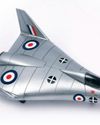
Mustard
BAC's Low Speed Research Vehicle
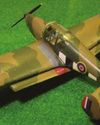
KOVOZAVODY PROSTEJOV (KP) 1 Was Monty's Triple'
Brian Derbyshire
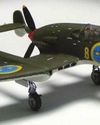
SPECIAL HOBBY SAAB J-21A Review
From the late 1930s and early 1940s, with thewar in Europe raging around them andedging ever closer to its borders, the Flygvapnet had ordered Seversky P-35A aircraft, alongside Vultee Vanguards, but only sixty of the former and none of the latter were received.
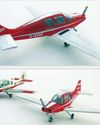
VFR MODELS Beagle B.121 Pup
This is the first 3D printed kit I have come across and it is really rather fine.
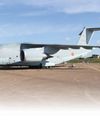
Hearts in the sky RIAT RETURNS
After a nearly three-year hiatus RIAT returned to our skies with a hot show in every sense of the word. SAM’s Mike Verier and Ray Ball were there.
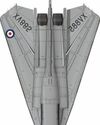
Colour Conundrum
A Cancellation Conundrum - The RAF F-111s That Might Have Been Part 1

COPPER CAUDRON Caudron G.Ill in 1/32
Copper State Models have carved a name for themselves in the last few years producing high quality plastic kits of World War One subjects.
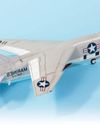
Academy RF-8A Crusader Conversion in 1/72
USMC squadron VMCJ-2 used six RF-8As during the Crisis (designation F8U-1P until September 1962), with others held in reserve, two flying out of Guantanamo Bay, and four out of NAS Key West.
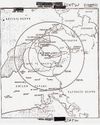
The Cuban Missile Crisis
Modelling US reconnaissance assets in 1/72 Part 2: The Nuclear Confrontation
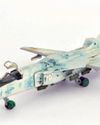
UKRAINIAT striker
The Sukhoi Su-24 is an all-weather attack aircraft capable of supersonic speeds and characterised by its side-by-side pilot/navigator seating and its variable geometry wing.